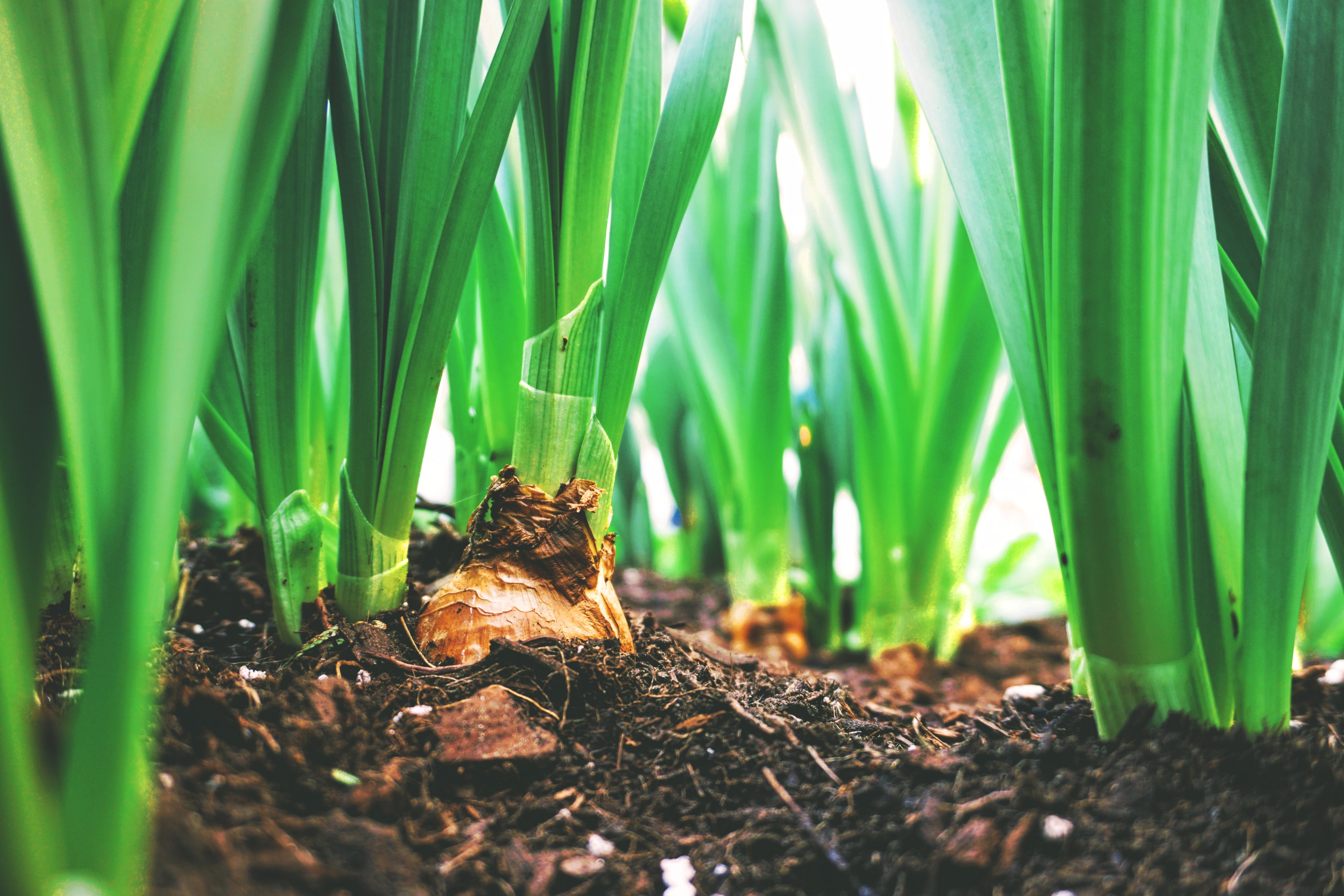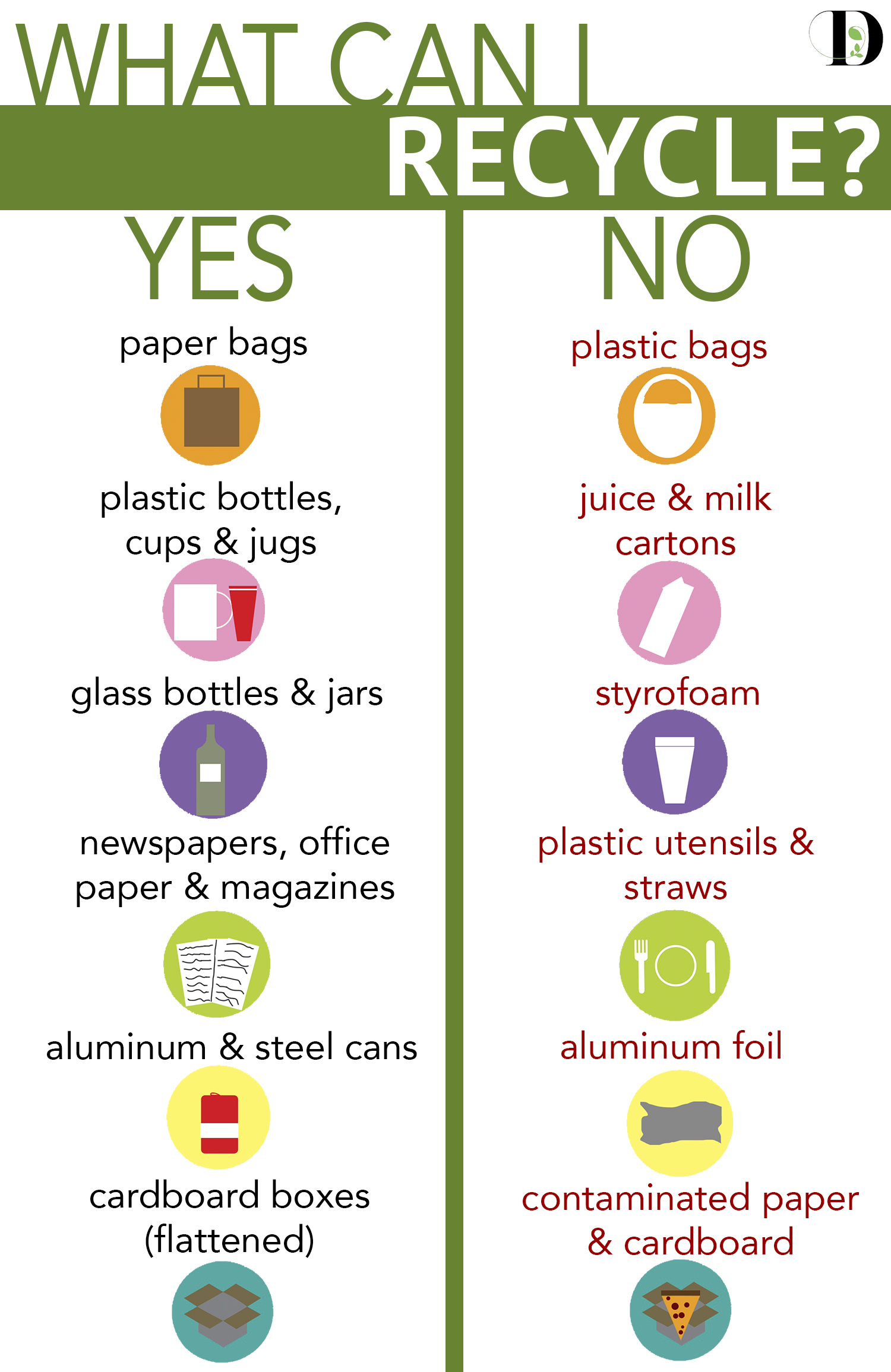Eight GR8 Tips to Reduce Your Waste
We’ve all seen the “Don’t Mess With Texas” bumper stickers, billboards and merchandise, but you might not know that the slogan is actually dedicated to a deeper cause: eliminating litter in the Lone Star State. In the United States, the amount of trash generated daily averages 4.4 pounds per person. If this waste were packed into cubic feet, it could fill the Leaning Tower of Pisa. In Texas alone, 17.8 tons of trash were generated per person in 2016. We’re working hard to manage waste at the Dallas Arboretum, and we’re always finding new opportunities to improve. We wanted to share some quick tips and information from sustainability experts to help you reduce unnecessary waste without sacrificing quality of life.
Ever wonder how the vibrant plants in the Dallas Arboretum flourish in the Texas heat? Composting is a key component of how we make a hearty fertilizer that plants love. In fact, all our plant waste is recycled at a processing station nearby to ensure minimum waste. Then we use this in our beds across the gardens!
By mixing organic materials with soil in a small area outside, you can improve gardens and lawns with the new compost concoction. Eggshells, fruit scraps, vegetable scraps, coffee grounds, dry leaves, grass, and plant clippings can all be added into the mixture. Composting is a fun, interactive activity for kids that will make the Earth happy. If you want more info, educators in the Rory Meyers Children’s Adventure Garden are ready to share tips to get kids excited about composting at home.
2. MAKE A MEAL PLAN
Wasted food makes up the largest percentage of waste in American landfills, according to the Environmental Protection Agency. Try making a meal plan for the week. In just 10 minutes, you can reduce your food waste and make the air cleaner for future generations. Going green can even save you some green—cha ching! The average American family throws away $2,000 of food per year. If you are having trouble thinking of recipes, check out our Dallas Arboretum cooking demos, recipes and classes. Pro-tip: buying non-perishables or dry goods in bulk or produce directly from farmers markets are easy on the wallet and the environment.
3. SAY GOODBYE TO PLASTIC
Swap plastic bags for reusable canvas bags, plastic water bottles for refillable bottles, and plastic utensils for dishwasher-safe silverware. These quick, easy changes can reduce the growing plastic garbage island in the middle of the Atlantic and reduce the risk that ocean animals eat the litter and get sick.
4. CANCEL UNNECESSARY MAIL
Subscriptions tend to sneak into mailboxes, and we do not even remember signing up for them. Many wind up in the garbage without a read. Be sure to go the extra mile and unsubscribe from catalogues you do not read. There are a number of services, some free and some paid, that make it easy to pick which catalogues, solicitations, promotional offers, credit card offers, and magazines you would like to unsubscribe from. Switch over to online newspapers and ebooks to spare some trees.
5. BE PRUDENT WITH YOUR PAPER
To use less paper towels, try using rags around the house. Cloth napkins spruce up a dinner table and can be reused, too. Be mindful of printing out only what you need from the printer at work and at home. A 12-foot wall from Los Angeles to New York City could be built from tossed office paper every year.
6. SHOP SUSTAINABLE
Many people do not know that the fashion industry is the second largest industrial polluter behind the oil industry. It accounts for 10 percent of global carbon emissions. Download any one of the many apps that can help you discover eco-friendly brands with reasonable prices (we don’t want to play favorites, but a quick online search for “apps that help shop sustainably” is a good place to start!). Donating old clothes and finding ways to repurpose things in your closet are also great ways to be more sustainable.
Paper, plastic, glass, metal, and cardboard are almost always recyclable. Set up a recycling bin in your home by the door for mail and another in the kitchen. You can even cash in 55 cents per aluminum can at CMC Recycling Centers in Dallas. Be sure to give old electronics to these e-recycling plants. Check out the infographic to explore what can and cannot be recycled. If recycling is not picked up in your neighborhood, here is a list of recycling drop-off locations.
8. SPREAD THE WORD
Consciousness is key when it comes to sustainability. By telling friends and family to put food scraps in the compost or empty milk jugs in the recycling, you are doing your part in raising awareness. The effect when you encourage dozens of small, conservationist acts on the part of others can add up to one giant impact.
By implementing these eight, easy sustainability acts, you can reduce your carbon footprint. The Earth will be healthier, and so will the future generations. Stop by the Dallas Arboretum to learn more about composting, environmental impacts, cooking, or just a little time to appreciate nature and take a breath of fresh air in the gardens.
Related Posts
Comments are closed.








